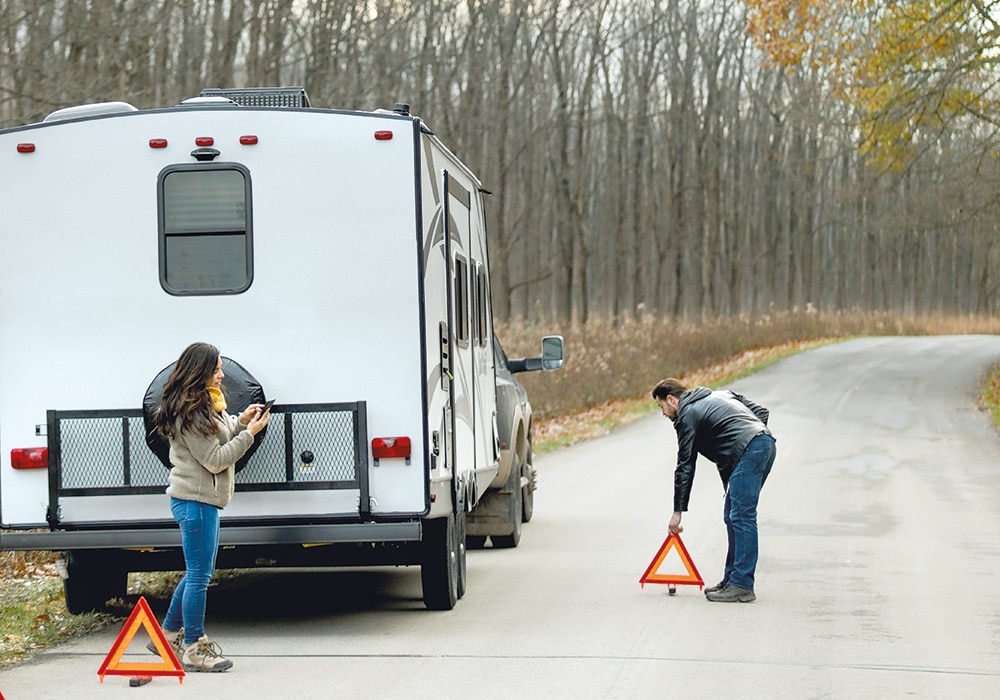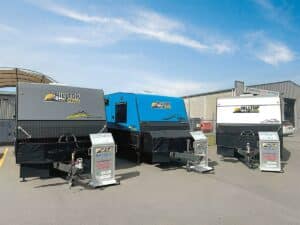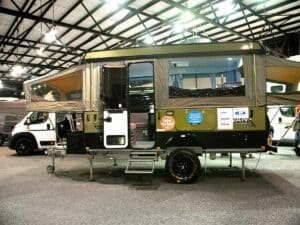When we’re out and about, a good trip is a safe trip – and most of the time, that’s how it goes. MCD columnist Liz Dobson tells how to be ready for that one trip that doesn’t go according to plan.
For the majority of us, adventure on the road involves finding hidden treasures, deliberately getting lost and truly relaxing away from it all. Every now and again, however, things take a turn for the unexpected. When – if – this happens, knowing you have everything you need with you is a godsend you’ll never regret.
It doesn’t matter if you’ve just bought your first caravan or you have been on the road in your motorhome for a long time, all of us have to be ready for an emergency that may strike. The unexpected is just that; it can happen anywhere, at any time. It could be a breakdown, an accident, perhaps a landslide on your route, heavy rain and flooding or even an earthquake or tsunami. Natural disasters are rare but far from unheard of in New Zealand; in recent years we’ve had earthquakes, flash flooding, cyclones and even the occasional volcanic eruption. They don’t happen often – but they do happen.
Having a home on wheels is actually great when bad weather is approaching, because you can simply move away from it. You can also plan your trips around when you know inclement weather will occur, though as you know in New Zealand, a storm can hit at any time of the year.
It won’t take much to ensure you’re ready for anything; here’s some advice on how to keep safe, and remember the Boy Scout motto: Be prepared.
First things first
Although you have insurance for your mobile home, it pays to check the fine print to see if it covers natural disasters such as earthquakes or tsunami. If you’re still looking at insurance options, talk to a company which specialises in RV insurance like StarInsure and Covi, as they are well versed in the types of insurance you’ll need.
Modern technology is also your friend; download some weather apps onto your smartphone to keep yourself informed of any upcoming weather events. It pays to check it before you head to a new region too. The best free weather apps in New Zealand are Metservice, Coastguard NZ, NIWA Weather, and Hazards Red Cross. Don’t forget to update your apps regularly as they will have software improvements.
It pays to have emergency contacts in your phone; if you do need to contact your insurer, roadside assist and maybe your vehicle manufacturer at short notice, the last thing you want to be doing is searching for a number.
Weathering the weather
If you know that bad weather such as a storm or heavy snow is approaching, it’s best to get your RV ready in case you need to park up for a while or evacuate. To get your vehicle ready for an incoming weather event, disconnect your electric power cord from the source; shut off, disconnect and stow your water and sewer hose as if you were packing up to leave.
Move every item, such as chairs, barbeques, awnings into or securely onto the vehicle. For insurance purposes, take a photo of your vehicle parked at your campsite or location showing the condition before the storm, and time and date stamp the images.
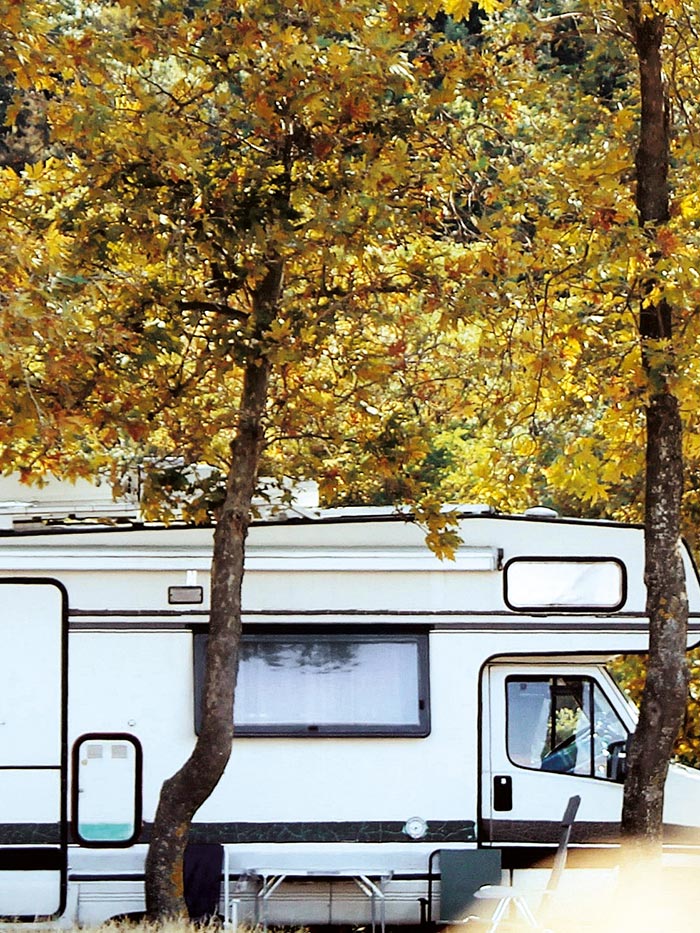
Be seen
If you break down alongside a busy road, make sure you are easily visible to other motorists as they approach. Make sure your hazard lights are working, especially if you have a caravan. Items to consider carrying with you in your motorhome or tow vehicle should be a reflective triangle (available from many outlets including The Warehouse and most vehicle suppliers). Consider having a few reflective vests on board too; these are useful when you need to be seen clearly, or if you have to get out of your vehicle in the dark. They are also useful if you go to help fellow motorists or in the case of an emergency and you need to help.
If disaster strikes
For most RV owners, the chance of encountering natural disasters are unlikely, and luckily in New Zealand, we are never too far from help. However, if you are on the road during an earthquake, pull over and wait for it to subside. Don’t try to out-drive it, or park under a tree, cliff face or power pole and if you are already parked up for the day, move away from trees or obstacles that could get uprooted. If you’re on the road, stay seated with your seat belt fastened but if you are at a campground, seek shelter under a table. If you are near the beach, head for higher ground as soon as possible.
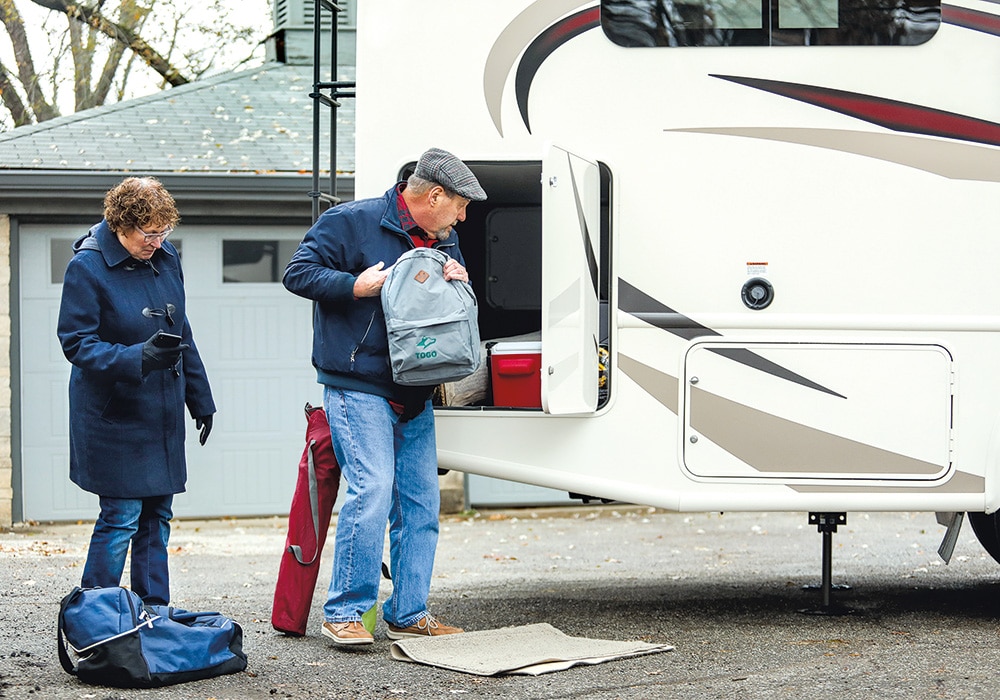
Go Bag: The essentials
The Merriam-Webster dictionary defines a Go Bag (or Bug Out Bag) as “a bag packed with survival supplies and kept ready for use in case of an emergency that requires rapid evacuation”. For news reporters, that’s a bag kept under their desk with a change of clothes and passport in case they get sent to cover a breaking story. For all RV owners, a little more thinking and preparation is needed. Get a backpack that can be stored within easy access on your vehicle, i.e. behind the driver’s door. Make sure you check and upgrade items like food and batteries regularly.
- Medication and a basic first aid kit
- Passports (for ID)
- Credit cards
- Spare keys for your mobile home or vehicle
- Cash (in case eftpos is down)
- Snack bars
- Water bottle each
- Hi-viz vests
- Can of pet food (if needed) with can opener
- Cellphone charger
- Face/dust masks
- Blanket or sleeping bag
Looking for motorhomes or caravans for sale in NZ? Browse our latest listings here.

